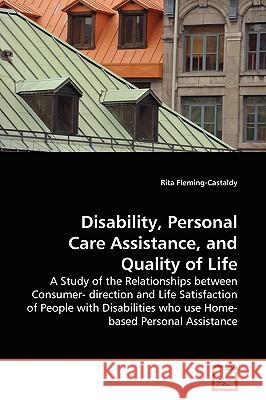Disability, Personal Care Assistance, and Quality of Life » książka
Disability, Personal Care Assistance, and Quality of Life
ISBN-13: 9783639157734 / Angielski / Miękka / 2009 / 132 str.
People with disabilities often require personal care assistance (PCA) to perform daily activities and pursue life roles. PCA has historically been institution-based, resulting in the segregation of disabled people. Home-based PCA is an alternative to institutional care. These services can be agency-directed or consumer-directed. Disability rights activists strongly advocate for consumer-directed programs since personal control is key to a satisfying life. This text describes the foundations of consumer-direction and a study which tested the postulate that having control of and choice in PCA services result in a more satisfactory life. Since the incurrence of disability can result in impairments that contribute to a dissatisfying loss of control over many aspects of life, the finding that disabled people can mediate their limitations by self-managing their PCA is important. The significant impact of self-management of PCA on life satisfaction supports the value of consumer-directed PCA programs for persons with disabilities. The implications of consumer-direction for healthcare services, policies, and research are discussed.











